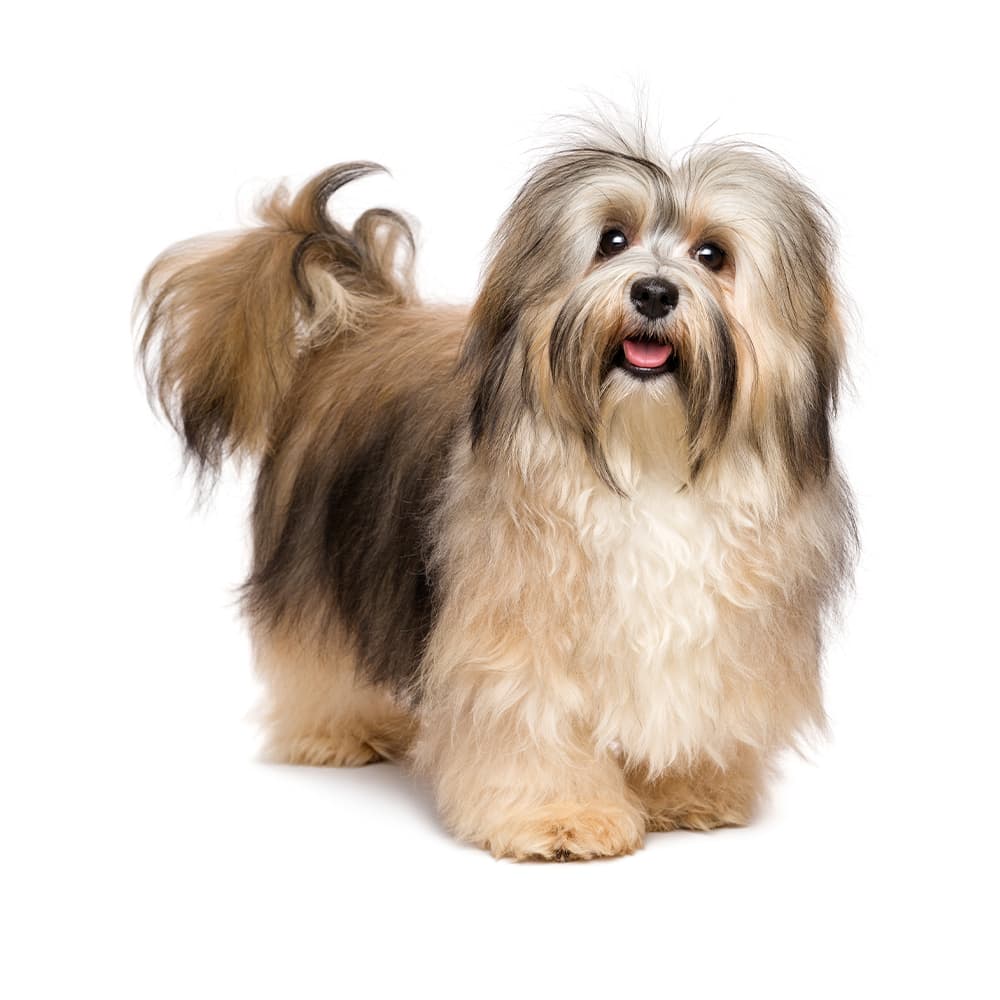Discover your dog's connection to this breed and 200+ others


Discover your dog's connection to this breed and 200+ others



The Bichon Havanais, also known as the Havanese, is a small dog breed that hails from Cuba, specifically from Havana, from which its name is derived. The Havanese is the national dog of Cuba and the only breed native to the country. Its lineage can be traced back to the Bichon family of dogs, which were popular in the Mediterranean during the Middle Ages and made their way to various regions through trade, colonization, and other forms of cultural exchange. The Havanese descended from the Blanquito de la Habana (little white dog of Havana), which itself was derived from the Bichon Tenerife. The breed was developed in the 19th century when it was kept as a companion dog by the Cuban aristocracy. During the Cuban Revolution in the 1950s, many Cubans who fled to the United States brought their beloved Havanese with them, saving the breed from potential extinction. From then on, the Havanese grew in popularity and was recognized by the American Kennel Club in 1996.
Bichon Havanais can suffer from eye conditions, including multifocal retinopathy 1, vitreous degeneration, distichiasis, cataracts, persistent pupillary membranes, progressive retinal atrophy, and retinal dysplasia. They may also be affected by chondrodystrophy with or without chondrodysplasia, deafness, hip and elbow dysplasia, Factor VIII deficiency (hemophilia A), macrothrombocytopenia, heart murmur, hypothyroidism, Legg-Calve-Perthes disease, von Willebrand Disease (Type I), mitral valve insufficiency, oligodontia, osteochondrodysplasia, patellar luxation, portosystemic shunts, renal dysplasia, and sebaceous adenitis. Genetic testing for hereditary conditions is recommended to assist veterinarians with diagnosis and proactive care, as well as help breeders identify affected and carrier dogs.
The Havanese is known for its cheerful and friendly disposition. They are intelligent dogs that respond well to training, making them suitable for a variety of roles, including companionship, therapy work, and performance in dog sports. They are highly sociable and do well in families and with other pets. Havanese dogs are quite affectionate, often forming strong bonds with their human families and disliking being left alone for long periods of time.
Despite their small size, Havanese dogs are energetic and require regular exercise to maintain their health and happiness. They are also known for their remarkable adaptability, being just as content living in a small apartment as they would be in a large home with a yard.
Overall, the Havanese is a charming and versatile breed that offers a combination of companionship and liveliness, making it a favorite choice for many dog lovers.
Ernest Hemingway and Charles Dickens both owned a Havanese.
The Havanese are sometimes referred to as "Velcro dogs" because of the level of human interaction they require.
They were once called the Havana Silk Dog or Spanish Silk Poodle.
https://www.akc.org/dog-breeds/havanese/
DOI: 10.1002/9781119540687
https://www.petmd.com/dog/breeds/c_dg_havanese
https://www.pawprintgenetics.com/products/breeds/260/
Recommended by top vets with decades of experience
21 breeds
64 genetic health markers
50 genetic trait markers
